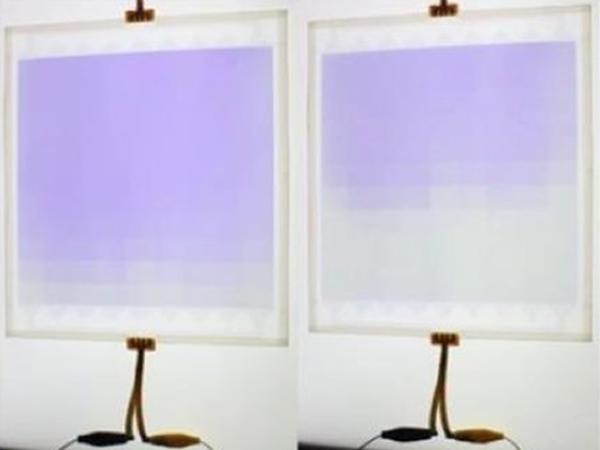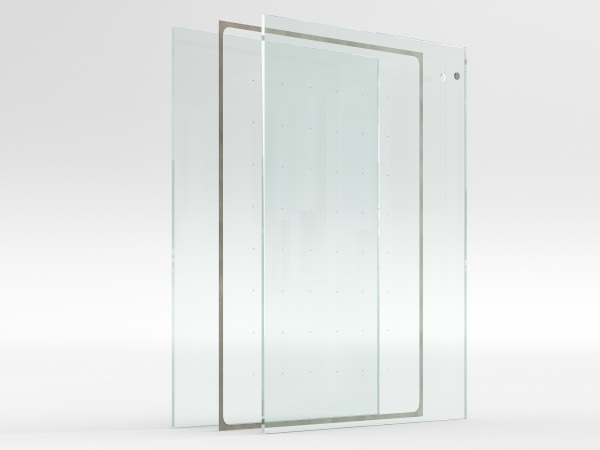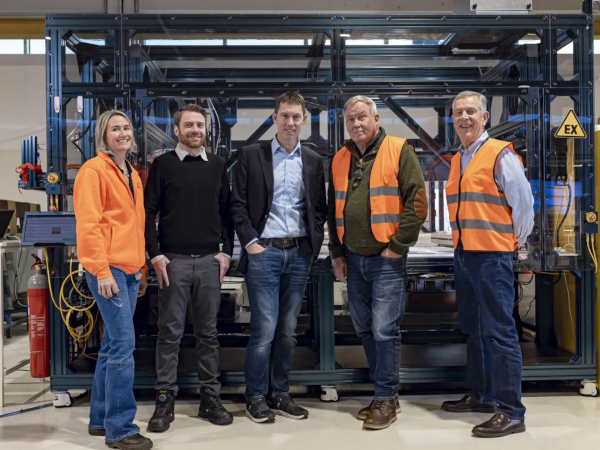
Date: 17 November 2017
NIMS, Waseda University and Tama Art University developed together smart glass capable of producing various shades on its surface. Unlike the conventional types, the newly developed tinting smart glass allows users to easily change the shaded area of a window.
For example, a user would be able to change the shaded area of a window in accordance with the elevation of the sun. The technology may be applicable to various types of windows, including those of automobiles and buildings, enabling them to offer both shade and clear visibility simultaneously.

Credit: Image courtesy of NIMS
Electrochromic glass capable of blocking sunlight in response to electricity has been used in airplane windows in recent years. However, because these windows become shaded uniformly across their entire surface, once they are darkened, passengers are unable to enjoy any exterior views.
The joint research group recently developed a tinting smart glass that can produce gradational shade (Fig. 1) using electrochromic polymers (metallo-supramolecular polymers) studied by the group. The darkened part of the glass surface can be changed simply by applying a low voltage (3 V) for different durations.
The desired shade can be maintained even after the voltage is reduced to turn off the current. In addition, the shading and transparency can be reversed by reversing the electric current, allowing users to easily change the darkened area of the glass surface as desired.
In the future, we plan to direct our research toward practical applications of this technology, including windows in vehicles (e.g., automobiles and airplanes) and in buildings.
This research was conducted jointly by a NIMS research group led by Masayoshi Higuchi (leader of the Electronic Functional Macromolecules Group, Research Center for Functional Materials); Research Organization for Nano & Life Innovation, Waseda University, and Faculty of Art and Design, Tama Art University.
This study was carried out in conjunction with a research project entitled “Ultrafast, ultralow-power, ultralarge-area electrochromism” (Masayoshi Higuchi, principal investigator) in the research area “Innovative nano-electronics through interdisciplinary collaboration among material, device and system layers” (Takayasu Sakurai, research supervisor) funded by the JST Strategic Basic Research Programs (specifically the CREST program).
 600450
600450










Add new comment